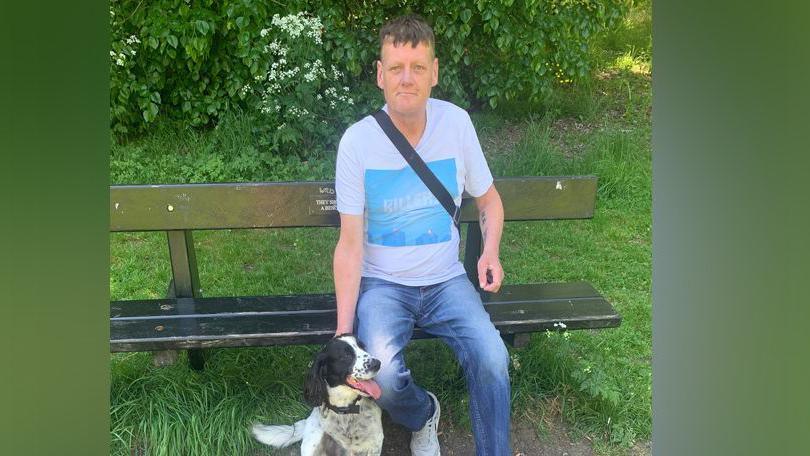Dog owners not picking up poo 'may be neglecting pets'
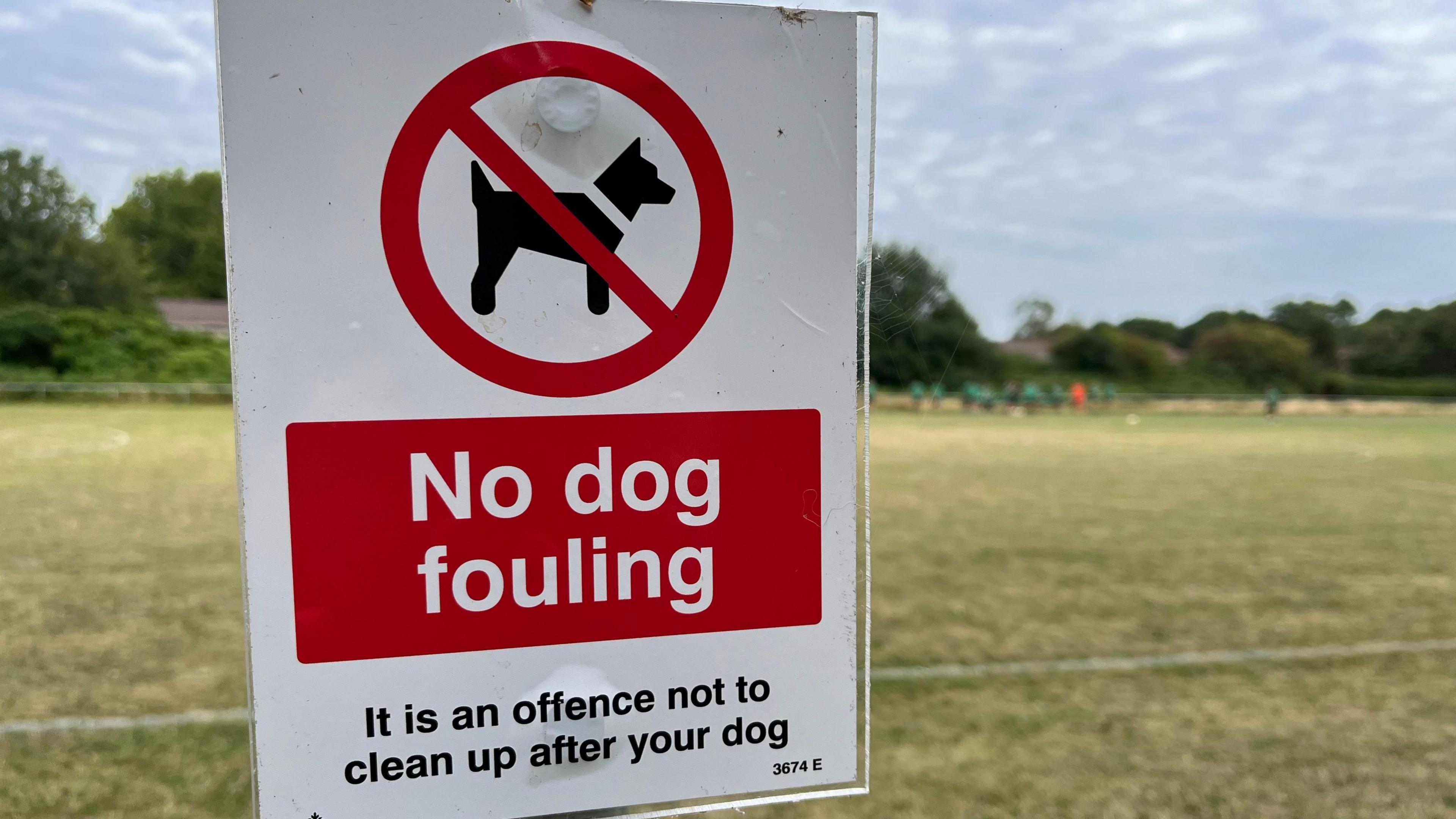
Dog fouling can have dangerous repercussions for both humans and animals, scientists at Aberystwyth University say
- Published
Owners who fail to pick up their dogs' poo could also be neglecting their pets' health in other ways, a research study has found.
Scientists at Aberystwyth University tested dog waste samples and discovered 20-25% of those found left in the environment - compared to 6-12% of those sourced responsibly – contained potentially dangerous pathogens, external.
It comes as Croesyceiliog Athletic FC in Cwmbran, Torfaen, is leading the way on cracking down on the issue after one of its eight-year-old players was left "covered" in dog waste at a recent practice.
The child's coach said poo left on parks and pitches was a "massive concern" for children's health.
Charity campaign Keep Wales Tidy said the focus should be on owners taking more responsibility, especially as the winter months usually bring a "huge uptick" in dog fouling cases.
Council prosecutes nobody on dog poo in four years
- Published1 April 2024
Rainy weather blamed for rise in dog poo
- Published8 December 2023
How an eight-year-old is tackling dog poo mess
- Published31 May 2021
According to Dr Russ Morphew, a reader in biochemistry and parasitology at Aberystwyth University, the results of the study "really speaks to owner behaviour".
"Those people who are responsibly picking up their dog faeces are essentially likely to be looking after their dog to a much higher standard than those people who are somewhat irresponsibly leaving them in the environment," he explained.
He added they were "surprised" at the difference between the samples disposed responsibly, and those that were not.
Researchers also found harmful pathogens - infectious microorganisms that can include bacteria or viruses - in dog faeces left in the countryside, adding many dog walkers may not realise the effect it could have on livestock if left there.
"There's an infectious agent known as neospora, which is a parasite that infects cattle and causes abortions among their young," said Dr Morphew.
"That has a real potential to cause some quite devastating impacts on cattle health and welfare."
He added: "As a nation of animal lovers, we really want to see our animals healthy, whether that be our own domesticated animals, like our dogs' health.
"Some of these infections are transmissible to cats, and wildlife such as foxes.
"But then we have significant impact on the health of livestock and the rural industry as well, so the concern really is with wider animal health, as well as the smaller risk to human health as well."
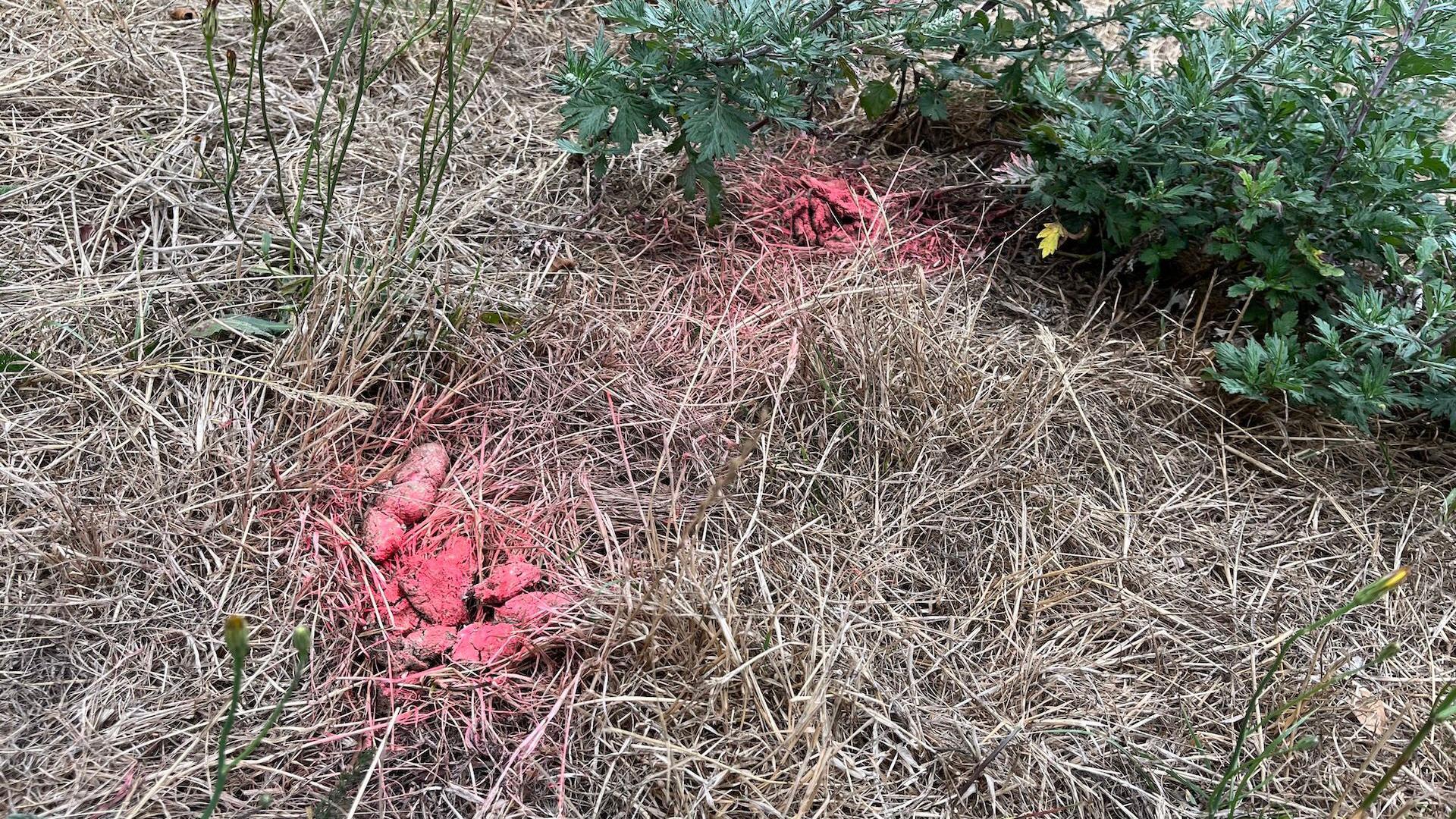
Using chalk spray to highlight dog poo left by pet owners is part of Torfaen council's campaign to tackle the issue
Ahead of every training session for Croesyceiliog Athletic's U9s team in Llanyrafon, Nathaen Lucas and his fellow coaches arrive at least half an hour early to check the pitch for dog poo.
The field on which they train stands alongside a path popular with people who walk their dogs, and Mr Lucas said it was an "ongoing battle".
"The straw that broke the camel's back was a few weeks ago," he said.
"We swept the pitch like we always do, but unfortunately missed a piece, and one of our eight-year-olds landed in it."
"He was obviously visibly upset, it was covering his clothes, and we had to take him home. He couldn't participate in training, which was heartbreaking for him."
Mr Lucas said some weeks the number of dog faeces they found reached "double figures", and that the problem plagues many other parks and pitches.
"I speak to various coaches from other teams and they're doing the same week in, week out," he added.
"A child could potentially be blinded, and it could have everlasting effects on their health. We're only here to play football."
He said Torfaen council had sent enforcement officers to the site and asked the club to log incidents of dog fouling as part of a wider local campaign with other organisations.
A football club is taking action against dog fouling after one of their young players fell in waste.
Torfaen council said working in collaboration with the football club and others would help it to "plan more targeted visits and act as a deterrent to irresponsible owners", although it admitted no fixed penalty notices had been issued so far in 2025.
Councillor Mandy Owen, cabinet member for the environment, said: "We're committed to tackling the issue of dog fouling in public places, which is a disgusting problem that affects everyone who uses these areas.
"We have Public Spaces Protection Orders in place which make it an offence to leave dog faeces in public spaces and ban dogs from areas like children's play areas.
"Our team of enforcement officers routinely patrol these areas and speak to dog owners to make sure they are aware of the legislation.
"However, dog owners who fail to pick up after their animals tend to do it discreetly so it can be difficult to catch them in the act."

Banners, posters and signage have been put up in Croesyceiliog near sports pitches and popular walking paths encouraging dog owners to be responsible
Laura Timmis, 39, from Conwy said she was previously a childminder and struggled when there was "hidden dog poo" at beaches and other public spaces.
"The kids are playing, and people had hidden dog poo in the sand, obviously unknown to us," said the mother-of-two.
"You do your best to clean that up, wet wipes and hand gel, but obviously dog poo is so dangerous, isn't it?
"We used to come to our local beach, but we don't anymore."
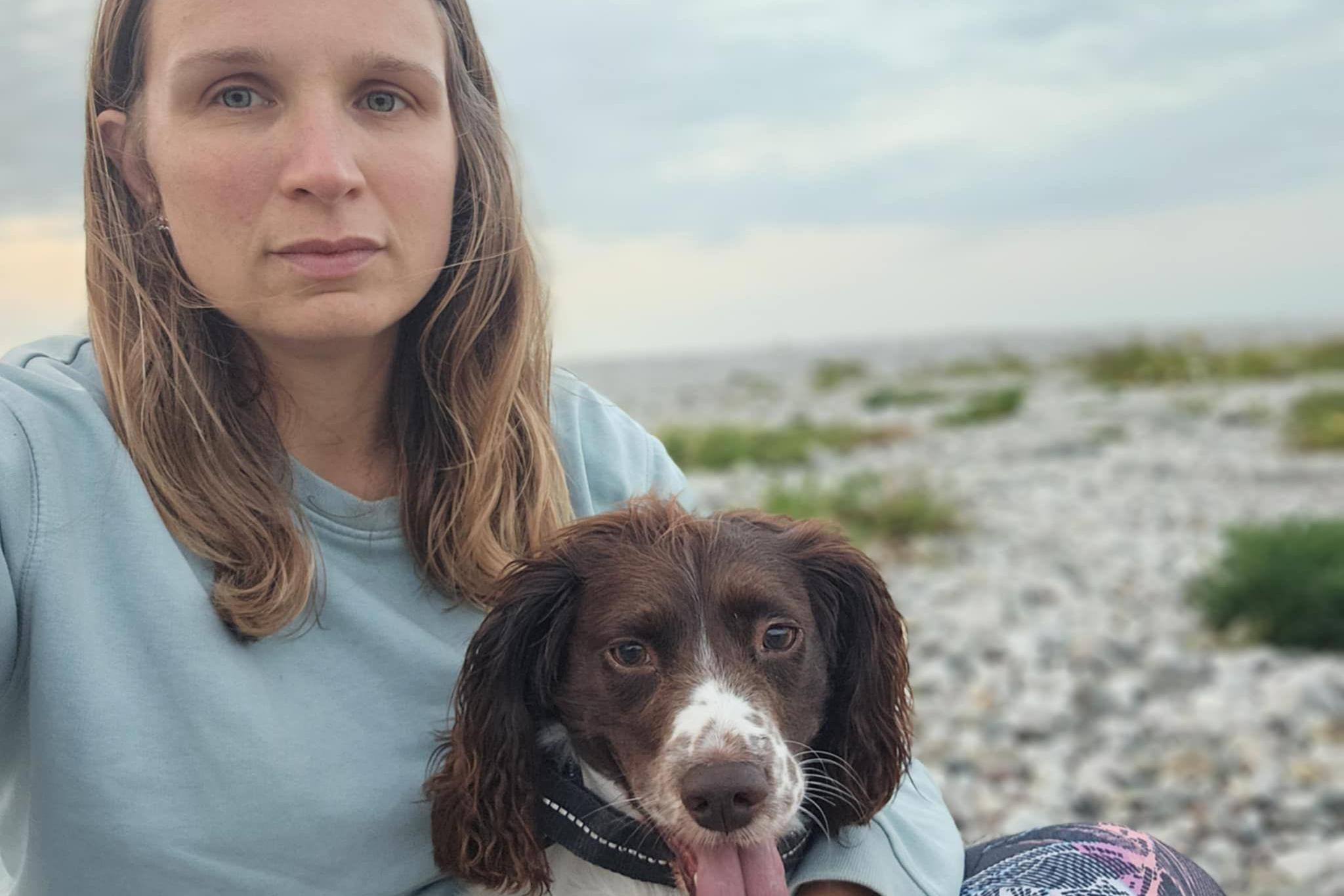
Dog owner Laura Timmis says it is hard to let her "naturally inquisitive" children "touch anything" when they are outside, in case there is hidden dog poo
The latest figures from Keep Wales Tidy suggest dog poo is present on 8% of streets, a figure the charity said was "entirely unacceptable".
Owen Derbyshire, chief executive, said: "Speaking as a dog owner, I know how much work it is and how much personal responsibility you need to take for everything the dog does.
"We've clearly seen a boom in dog ownership post-Covid, which is lovely in some ways.
"But equally it may mean that there are lots of owners who maybe don't quite understand everything involved in being a responsible dog owner.
"It needs to be culturally unacceptable, and we need to work together to make sure that's the case."
- Published8 February 2022

- Published14 August 2022
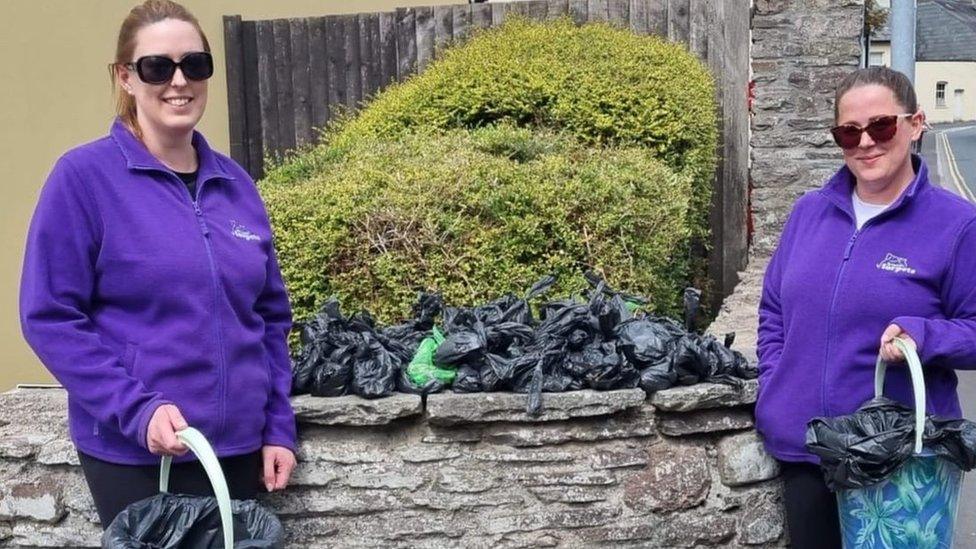
- Published18 June
